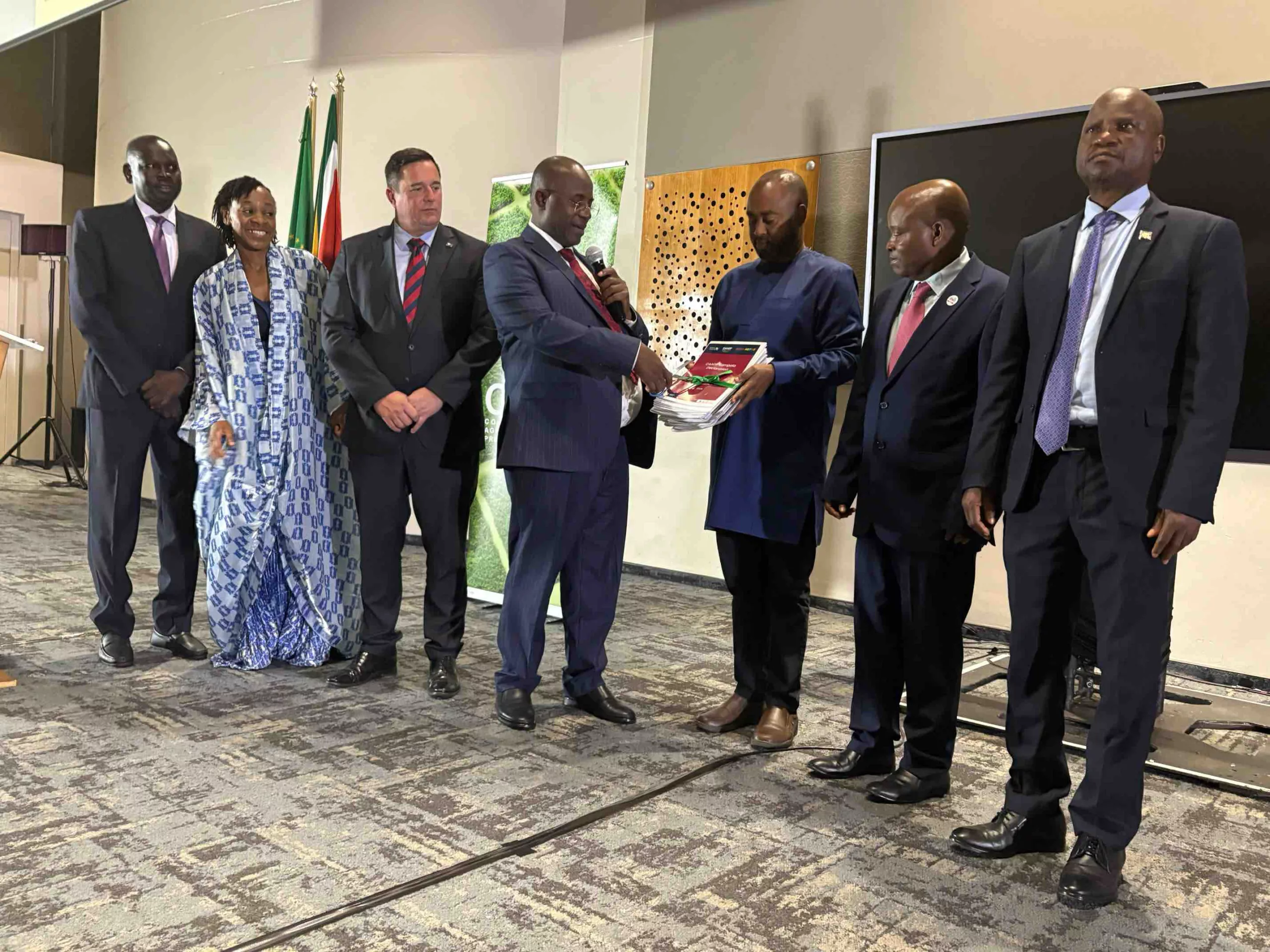|
Getting your Trinity Audio player ready...
|
JOHANNESBURG, SOUTH AFRICA – Mr. Moses Vilakati, the Commissioner for the Department of Agriculture, Rural Development, Blue Economy, and Sustainable Environment (DARBE) in the African Union Commission (AUC) has set a 100-day plan to measure performance of the department in improving African Agriculture under the Africa Comprehensive Africa Agriculture Development Programme (CAADP) Strategy and Action Plan: 2026-2035 whose vision is to build resilient and sustainable agrifood systems for a healthy and prosperous Africa in line with the aspirations of Agenda 2063.
He made the remarks during the official launch of the CAADP Strategy and Action Plan (2026-2035), and the CAADP Kampala Declaration today in Johannesburg, South Africa that runs from the 5th to the 6th of May 2025.
“Today, Africa stands tall, during the launch of this transformative Strategy that was adopted during the Extra Ordinary Session of the African Union Heads of State Assembly in Kampala, Uganda, in January 2025. The Launch of this strategy is one of my key agenda in my 100-day Plan of Action for the Commission since my assumption of office as Commissioner for the Department of Agriculture, Rural Development, Blue Economy, and Sustainable Environment.
“A seed of hope has been planted in the fertile soil of Africa’s agricultural landscape. Today, we gather to nurture this seed into a bountiful harvest, symbolizing the transformation of our agriculture sector and the prosperity of our people,” Ambassador Vilakati said.
He said despite various challenges faced including budgetary constraints, weak advocacy and awareness creation, and weak infrastructure, African Union Member States remain resilient to the commitment of CAADP.
“Many countries have made commendable progress, though the targets set by the Malabo Commitments have not been fully achieved. I take this opportunity to congratulate the African Union Member States for the fortitude shown to make Africa self-reliant in terms of food Self Sufficiency.
“The new CAADP Strategy and Action Plan 2025-2036 marks a significant shift towards agrifood systems transformation. We recognize that agriculture is not just about production, but about creating a holistic system that encompasses production, processing, distribution, and consumption. It also envisions sustainable and resilient agri-food systems for a healthy and prosperous Africa.
“Through this strategic document, the continent has been offered a springboard to create greater coherence in the bid to drive nature-positive agricultural production systems that will support ecosystem restoration and bio-diversity gain,” he added.
In his address, H.E. John Steenhuisen, Minister of Agriculture, of the Republic of South Africa said the launch of CAADP coincided with sluggish economic growth and geopolitical changes, which necessitated consideration of how to domesticate and institutionalize the process.
He said engaging in global trade is a vital component of national food security strategies. However, he highlighted that excessive reliance on global markets can also render nations vulnerable to disruptions in international trade and supply chains.
“It is vital to acknowledge that the significance of the CAADP strategy lies in its valuable insights into resolving our current challenges. The prospects for expediting poverty alleviation in the coming years remain uncertain, as Africa faces the repercussions of socio-economic shocks and persistently high food inflation rates due to disease outbreaks, climate change, and other contributing factors.
“This is expected to have ongoing adverse effects on as adverse effects on food and nutrition security in the consumption levels of African households. One highlight of this launch is that attracting investment in our sector is essential for combating poverty and hunger while enhancing agricultural productivity. Strengthening resource mobilization is a key strategy to address the challenges facing our smallholder sector. Additionally, prioritizing the efficient allocation of available resources to boost sector productivity is critically important. In this context, evidence-based intra-sector prioritization is vital for improving agricultural resource management.
“The strategy has highlighted that Africa’s progress over the last twenty years presents a picture of significant progress though there is evidence of sluggishness currently, which is concerning. South Africa is reiterating its strong political leadership and commitment to drive the implementation, mutual accountability, and, significantly, the financing required to achieve the aspirations of CAADP. As political leaders, we must uphold our commitments to enhance agricultural growth and productivity while increasing the level and efficiency of farm investments for a broader impact, Minister “Steenhuisen said.
With the assistance of the AU and AUDA NEPAD, development partners, and experts, stakeholders were urged to address the challenges related to data management, as these will continue to impact the implementation of the CAADP Agrifood systems agenda. This underscores the importance of emphasizing mutual accountability during the Kampala period, concerning investments to bridge data gaps.
In a speech delivered on his behalf, Hon. Fred Bwino Kyakulaga, Minister of State for Agriculture for Uganda, representing the Specialized Technical Committee on Agriculture, Rural Development, Water and Environment said the meeting in Johannesburg set the pace for successful implementation of CAADP.






